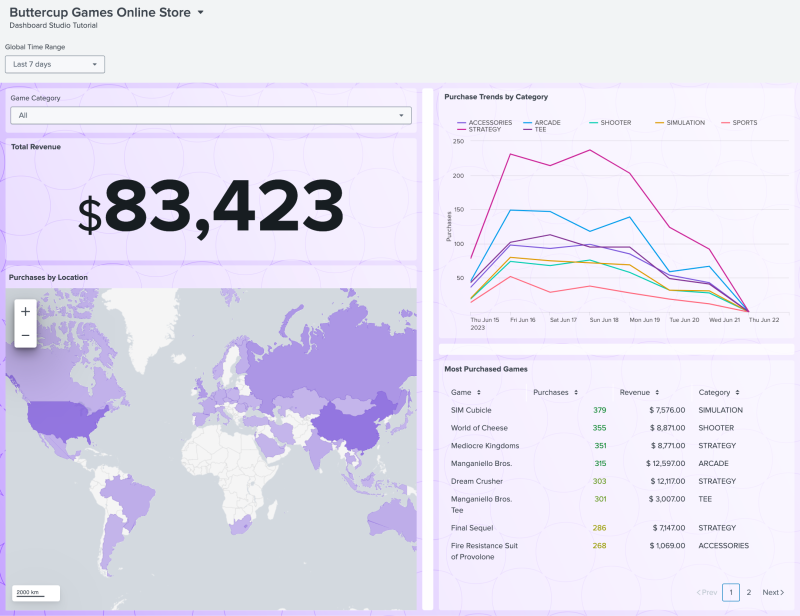Part 8: Save and export the dashboard
Now your final dashboard, after completing the Splunk Dashboard Studio tutorial, looks similar to this:

Make sure to select the Save button before exporting or leaving the page, as Dashboard Studio dashboards are not automatically saved.
You can download a PNG or PDF version of your dashboard and change permissions in View mode. To change permissions in View mode, select Actions and then Edit Permissions.
While in View mode, select Actions and choose to download your dashboard as a PNG or PDF.
Before sending others a link to your dashboard, apply View mode settings through the Configuration panel to configure the options that users will have when viewing the dashboard in View mode. The Configuration panel is only accessible in Edit mode. See Apply view mode settings for dashboard.
Visit the Dashboard Examples Hub for more resources
The Dashboard Examples Hub provides examples of visualizations, inputs, data sources, defaults, complete dashboards, and various configuration options. Each example lists source code for the data driving the visualization and its options, with each complete dashboard providing the full definition. You can use this code as a reference or copy and paste it into your own dashboard.
Access the Dashboard Examples Hub from the Dashboards page in the Search & Reporting app. From the Dashboards page, select Visit Example Hub under Latest Resources.
Learn more about Dashboard Studio
Congratulations! You have finished the Dashboard Studio tutorial.
Interested in learning more about Dashboard Studio? See Source code editor for more information about how to customize dashboards using the source code editor. For more information about visualizations you can create in Dashboard Studio, see Add and format visualizations. To learn more about SPL and how to create advanced searches for your dashboards, see Search Manual.
| Part 7: Add an input | What is the visual editor? |
This documentation applies to the following versions of Splunk Cloud Platform™: 9.3.2411 (latest FedRAMP release), 9.0.2303, 9.0.2305, 9.1.2308, 9.1.2312, 9.2.2403, 9.2.2406, 9.3.2408
 Download manual
Download manual
Feedback submitted, thanks!